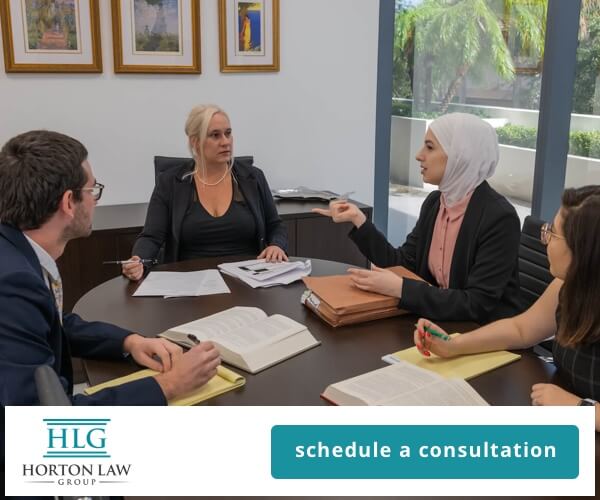What are the grounds for contesting the validity of a Florida Will or Trust in Florida?
Not properly executed.
For a Will to be valid, it must be in writing, signed by the Testator at the end of the document, and signed by two attesting witnesses. (Florida Statutes 732.502 (2020)). For a Trust to be valid, it too must be in writing, signed by the Trustor at the end of the document and signed by two attesting witnesses. These are commonly known as Will Formalities. These formalities must be strictly complied with. Failure to properly execute your Will or Trust is grounds for a Will or Trust Contest. If a Court finds the Will or Trust was NOT properly executed, the Will or Trust will be deemed invalid and the decedent’s estate will be administered pursuant to a prior executed Will or Trust, or if there were no prior executed documents, the estate will be administered as if the decedent dies intestate. If you believe your rights have been violated because someone executed a Will or a Trust without properly executing their estate plans, please call the Horton Law Group, P.A. today to schedule your free 30-minute consultation.
Lack of capacity.
A person who creates a Will of a Trust must be 18 years of age and of sound mind at the time of executing the document. (Florida Statutes 732.501 (2020)). The 18 years of age requirement is self-explanatory. Anyone who is less than 18 cannot execute a valid Will. The sound mind requirement is less obvious and has been described in further detail by the Courts of Florida. Generally, sound mind means the Testator understands what the property of their estate is, who the beneficiaries of their estate are, and how the Will affects the property and beneficiaries of the Testator’s estate. Hamilton v. Morgan, 112 So. 80 (Fla. 1927). Altogether, these concepts are known as “testamentary capacity.” If the Testator lacks testamentary capacity, then he or she cannot execute a valid Will or Trust.
Even where a Testator has been declared incapacitated in guardianship Court, if the Testator is able to understand the concepts that make up testamentary capacity, he or she can still execute a valid Will or Trust. This is known as a “lucid interval.” Even if a Testator is generally incapacitated but at the moment of Will of Trust execution has testamentary capacity, then the Court can determine the Will or Trust to be valid. Skelton v. Davis, 133 So. 2d 432 (Fla. 3d DCA 1961). Thus, a showing of lucid interval could counter a claim of incapacity by a Will contestant.
Will Contests and Trust Contests are expensive. Think about it, if the person who created the Will or Trust is dead, who else can prove whether that person had or lacked capacity at the time of creating their estate documents? The Court requires substantial and competent evidence to prove “lack of capacity” and expert medical testimony is necessary to achieve this. If you believe your rights have been violated because someone executed a Will or a Trust without having capacity to do so, please call the Horton Law Group, P.A. today to schedule your free 30-minute consultation.
Fraud, Duress, Undue Influence or Mistake
A Will or Trust may also be contested on the grounds of fraud, duress, mistake, and/or under influence under Florida Statutes 732.5165 (2020).
- Fraud occurs where a misrepresentation is made to the Testator to convince them to formulate their will in a certain way.
- Duress occurs where threats or coercion is used to force a Testator to make certain devises or gifts.
- Mistake does not describe a mistake in the Will itself, such as misspelling a beneficiary’s name, but rather that the Testator executed the wrong Will. In re Mullin’s Estate, 128 So. 2d 617 (Fla. 2d DCA 1961).
- Undue Influence is the most complicated. Undue Influence occurs where the Testator’s free agency is overcome by another person. Simply put, this occurs when someone else influences you (outsides the bounds of the law) to execute your estate plans how they want, not how you want. Where a beneficiary receives a substantial gift AND occupies a fiduciary or confidential relationship of trust with the Testator, and is active in procuring that gift, a presumption of undue influence arises. In re Carpenter’s Estate, 253 So. 2d 697 (Fla. 1971).
A Will may be found partially, or totally invalid, if it is the product of fraud, duress, mistake, and/or undue influence. If you believe your rights have been violated because someone was a victim of fraud, duress, mistake or unduly influenced when executing his or her Will or a Trust please call the Horton Law Group, P.A. today to schedule your free 30-minute consultation.
What is a Will or Trust Contest?
A Will or Trust Contest occurs when one or more interested parties challenge the validity of a Will or Trust. You would file a pleading with the Court making certain allegations against the Trustee named in the Trust or Personal Representative named in the Will. Once the Defendant is served, he or she will have 20 days to file a responsive pleading. The parties then engage in discovery and issue Subpoenas to gather evidence. Then the parties take depositions of the parties, the experts, relevant third parties in an effort to build their case or defense. The parties are required to participate in mediation. If the case cannot be resolved at mediation, a trial date will be set, and a Judge will decide if the Will or Trust is valid. If the Will or Trust is invalid, the Court will determine if the estate should be distributed pursuant to a prior executed Will or Trust or if the estate should be distributed through intestate succession.
The litigation process can take years and can be extremely expensive. Thus, it is important to ensure that you have knowledgeable and aggressive legal counsel on your side. If you believe that a loved one was a victim of fraud, duress, mistake or undue influence or any of the other grounds above, you should retain legal counsel immediately. There are steps that you can take prior to the Testator’s death to help your case. Thus, time is of the essence. Contact the Horton Law Group, P.A. today to schedule your free 30-minute consultation.
Why Hire the Horton Law Group, P.A?
The principal partner at the Horton Law Group, P.A., Attorney Sommer C. Horton, has been litigating estate cases for 20 years. She is an experienced and aggressive estate litigator. She is highly regarded for her creativeness, strategic judgment and her uncanny ability to deliver persuasive legal arguments in the courtroom. She has a tremendous skill for being an aggressive advocate for her clients, while being one who understands and appreciates how trying litigation can be, thus, she is extremely sensitive to her clients’ needs.
Ms. Horton is passionate about the law and believes in seeking justice for her clients in an ethical and economic manner. Ms. Horton fights for each and every one of her clients – every step of the way. Ms. Horton will spend time with you to make sure you understand the law, understand your rights and she will draft your estate plans for you so that you and your family are protected. In addition, she can assist you with your business planning, estate planning and asset protection needs too.
The Horton Law Group, P.A. is a boutique civil litigation law firm that only takes on a limited number of cases so that personal attention can be given to every client. Make the right call – schedule a free 30-minute consultation with Ms. Horton. You can make an appointment by calling 561-299-0018 or emailing legalsupport@hortonlawgroup.com.







